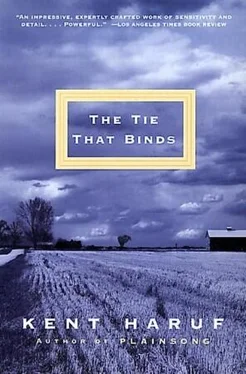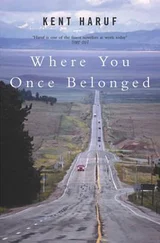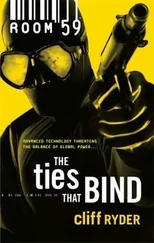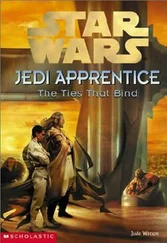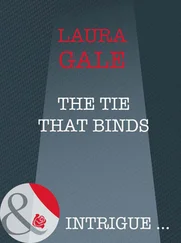Then in the long days of July, in that dry heat, he woke up. He discovered that now Roy had begun to have Edith cut hay too. The sun rose at five and set at nine, and most of that time she had been out there under it while he stood over her on the tractor and told her where to turn one minute and when to turn the next and in between times told her how fast. That evening my dad called me over to him, held me hard by the front of my overalls.
“Listen to me,” he said. “Are you listening? I want that stopped.”
“Yes, sir.”
“I want you to go over there in the morning and drive that tractor yourself. Can you do that?”
“Yes, but—”
“Just a minute; I never said it was going to be easy. But you do it. I’d do it myself, only I’d have to kill him first. Understand?”
“All right,” I said. “Yes.”
His eyes were looking hard at me; I couldn’t see anything else. There was something awful in his eyes, hurt and anger, I suppose, but something more too, something further back.
“And, son, if he says one word to you. . if that miserable cock says just one word—”
“I know,” I said.
“Okay,” he said. “I’ll tell your mom to pack you a good lunch.”
He let go of my overalls and I went in to bed.
Early the next morning I was waiting beside the Goodnoughs’ tractor when Edith and Roy came out to start work. Edith smiled at me. “Why, here’s Sandy,” she said.
But the old man wasn’t smiling. He was looking at me like I was a form of cutworm or a new strain of corn blight.
“What do you want?” he said.
“Nothing. I came over to help out.”
“Oh? And who asked you to help out?”
“Nobody.”
“That’s right: nobody. So you better just hightail it back to home.”
“I can drive the tractor,” I said.
“You can talk manure too,” he said.
“I can, though. I do at home.”
“Hah,” he said. “Straddled on somebody’s pants leg. Or diddling the wheel out in the machine shed.”
“No. In the field. By myself.”
“Sandy doesn’t mean any harm,” Edith said. “Leave him alone.”
“He’s a runt,” the old man said. “His ears is still wet.”
“At least let him try. He walked all the way over here.”
“It would speed things up,” I said. “Maybe it would free Edith to do something else. Miss Goodnough.”
I gave her a look and she winked at me. “I am way behind on the canning,” she said.
The old man looked at her and then looked over at the garden behind the wire fence. The beans and peas were beginning to wrinkle on the vines; the radishes had gone to seed, and the whole garden needed hoeing.
“Go ahead, Sandy,” Edith said. “Climb up.”
“Not so damn fast. I ain’t said so yet.” He studied me for a minute while he rubbed a stump along the bristle on his jaw. “How do I know you can cut hay?” he said. “I never seen you.”
“I cut some of ours last year.”
“Don’t lie to me.”
“I’m not. Ask anybody.”
“Hah.”
But he studied me some more, examining me now as if I was maybe a little less dangerous than corn blight; more like I was a pissing yellow dog or a talking jackrabbit. He spat between his feet and covered it with one of his shoes. “Drive around this yard once,” he said.
I got up on the tractor, an old John Deere, started it, and made a slow circle in the yard in front of the house and then stopped again beside them.
“So,” he said, “let’s see if you can find reverse.”
So I backed up and came forward to the same spot.
“It still don’t make enough of a show,” he said. “See them cheat weeds over there east of the barn?”
“Yes.”
“See can you cut them weeds without chopping no hole in my barn.”
So I drove over to the barn, lowered the sickle bar, and mowed the weeds beside the foundation, the section blades cutting them off low to the ground. There was a snarl of rusty fence wire in the weeds, but I managed to see it in time. Then I came back to Edith and Roy.
“Found the wire, did you?”
“Yes, but I missed it,” I said.
He looked at the sickle bar for tangled wire or new nicks. “Well, ain’t you the big britches,” he said.
“Stop it,” Edith said. “He’s already proved that he can drive a tractor better than I ever will. And probably as good as you could when you were his age.”
“I drove horses,” Roy said, and made a coughing sound that was his idea of a laugh. “That’s what you know about it.”
“Still,” she said, “you know what I mean. I’m going to start picking peas.”
She turned and walked away from him. She could be firm with him, even harsh with him occasionally, when she had to — over the little things. But she wouldn’t ever leave him; she just would not allow herself that much freedom. He watched her walk away, a small fine woman in a clean work dress that was still filled out in the right places, even if those places were never going to receive the full attention or the appreciation they deserved. At the picket gate she turned and called to me: “Sandy, you can eat lunch with me.”
Then she closed the gate and went up the steps into the house. The old man stood staring at the back door. He didn’t seem to be able to grasp that she had gone, disappeared, refused him. The door was shut. Finally, as if he expected some sudden help to descend out of the clear blue, he looked at the sky, then he looked at the tractor where I was, then at his hands, where there sure as hell was not any help. “Women,” he said. “That’s what I got left to me — a woman and a smart-ass neighbor kid.” He spat into the gravel again. “Hot damn.”
But the old buzzard had no other recourse. He climbed onto the tractor with me and I buckled the belt behind him. “Boy,” he said, “what the hell you waiting on? Drive me to the field.”
We drove out of the yard down the wagon track to the hay field. The old man stood spread legged and swaying behind me, leaning against the belt when the tractor jolted in the rut. When we came to the gate into the field he said, “Turn in here.”
“I know,” I said.
“Sure,” he said. “Just a goddamn big britches.”
That was my name all that day and most of the summer. I began cutting his hay that morning, circling in the field, making my rounds toward the center while the sickle bar rode wet and shining beside the tractor and laid the green grass down in rings. All the time too the old man rode behind me, waving his stumps past my ears to give me directions I didn’t want or need and yelling at me above the fire and crash of the tractor engine to turn, Britches, turn, goddamn, even though I was already turning the damn thing. So I must have determined at least a hundred times that if he shoved those raw nubs past my face again or called me Britches just once more I was going to buck the front of the tractor up, so help me Jesus, and pitch the old bastard off, sail him over his lousy belt contraption and, with any luck, if there was any justice under that sun, snap the strings in his scrawny neck. Of course just as often I decided not to. Instead I tried to go blind to his hands and deaf to his fool yelling. But it was a real test, and the only time I recall his being satisfied with anything I did was when the mower chanced to cut through the back of a five-foot rattlesnake. “Sliced him, by damn,” he shouted. “Hah.”
At noon we rode the tractor back to the house to eat. I didn’t know if I could take any more; I was hot, tired, itchy, mad. The old man seemed no different, though. He seemed to have only one gear in his makeup — a kind of full-speed-ahead crazy. When we got up to the house Edith was waiting for us. “Your plate is on the table,” she said. “Sandy and I are going to eat in the side yard.”
Читать дальше
